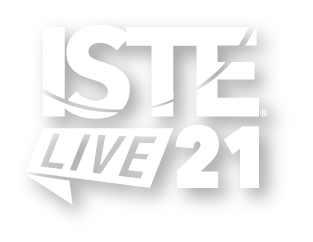

Computational Thinking Microcredentials: Supporting Preservice Teachers’ Skills and Lesson Development |
Participate and share : Poster
Poster presentation
Dr. Kelly Keane Irene Bal
Learn how online microcredentials in computational thinking helped preservice and inservice teachers develop their computational thinking knowledge, skills, pedagogy and lesson plan development.
| Audience: | Curriculum/district specialists, Teacher education/higher ed faculty |
| Attendee devices: | Devices not needed |
| Topic: | Computer science & computational thinking |
| Grade level: | Community college/university |
| Subject area: | Computer science, Preservice teacher education |
| ISTE Standards: | For Educators: Learner
|
This study is multi-faceted, utilizing various data collection methods to better understand the impact on preservice teachers. First, a pretest-posttest design was utilized to capture the knowledge growth of the participants. Second, a one-shot experimental case study is being conducted. Multiple assessments, activities, and a reflection journal were included in the micro-credential courses. An analysis of those assessments, activities, and reflections were also conducted focusing on the pretest results and how the pretest scores impacted these course activities. We are also looking at the final lesson plans for these learners, focusing on integration of CT concepts and the use of the Understanding by Design template for backwards planning. The analysis of these items will be a combination of descriptive, quantitative, and qualitative to achieve a better understanding of how these micro-credentials supported preservice teachers growth in their CT knowledge and integration.
The courses were implemented within a Learning Management System (LMS) that was also utilized to collect the data. All data collection tools such as surveys, tests, activities, etc. were presented to learners in the LMS as part of the learning and course activities in the modules. The data sources include pre- and post- content tests, module-level self-graded quizzes, computational thinking activities, lesson plan analyses, reflection journal, and original lesson plan development. This program was developed for preservice and inservice educators (N=82) but will only focus on the registered preservice teachers (n=17) who successfully completed the program (n=10), which was 59% of the registered preservice teachers. The completed preservice participants (n=10) were preservice teachers at a northeastern University who successfully completed the courses over the summer. These participants were recruited from the junior, senior, and Masters of Arts in Teaching (MAT) classes of declared preservice teacher education programs through email, phone calls, and advisor recruiting. The micro-credential courses were fully online supporting socially distant opportunities for continued summer growth.
The micro-credential courses finished on October 1, 2020, so the data has been collected but has not yet been analyzed for final results. We will be analyzing the completed participants’ (n=10) pre- and post-content tests, tests, module-level self-graded quizzes, computational thinking activities, lesson plan analyses, reflection journal, and original lesson plans through Fall 2020. We expect to see growth in the computational thinking (CT) knowledge and skills from the pre- and post-content surveys, self-graded quizzes, and activities. Through the lesson plan analysis, reflection journal, and original lesson plans, we expect to find gaps within their knowledge, and suggestions for course improvement and further skill building. We also expect to find mixed levels of CT integration methods in the lesson plan analysis and original lesson plans.
As we analyze these data points, we plan to focus on the design of the micro-credentials, to understand what gaps of content are missing to inform future redesign efforts and determine what supports are needed to grow preservice teachers in computational thinking knowledge and integration in a K-8 classroom. This information will inform future research, preservice programs, and first-year teacher programs in understanding what supports and information are needed for these groups in the development of CT skills, knowledge, and lesson plan development.
Bell, T. (2018). CS unplugged and computational thinking, In: Proceedings of Constructionism 2018, Vilnius, Lithuania, p. 22 – 28.
Bower, M., Wood, L., Lai, J., Howe, C., Lister, R., Mason, R., … Veal, J. (2017). Improving the Computational Thinking Pedagogical Capabilities of School Teachers [PDF File]. Australian Journal of Teacher Education, 42(3), 53–72. https://files.eric.ed.gov/fulltext/EJ1137876.pdf
Brame, C. J., (n.d.) Active learning [PDF File]. https://cft.vanderbilt.edu/wp-
content/uploads/sites/59/Active-Learning.pdf
Burke, Q., Bailey, C. S., & Ruiz, P. (2019). CIRCL primer: Assessing computational thinking [PDF File}. CIRCL Primer Series. https://circlcenter.org/wp-content/uploads/2019/01/CIRCL-Primer-Assessing-CT.pdf
Caldwell, J. (2018). Creative coding: lessons and strategies to teach computer science across the 6-8 curriculum. [PDF File] Portland, OR: International Society for Technology in Education. https://drive.google.com/file/d/1wKGHY-FfGpn8fSpsUlq6dIuam9BaYMw3/view
Conery, L. S., Stephenson, C., Barr, D., Barr, V., Harrison, J., James, J., & Sykora, C. (2011). Computational thinking: teacher resources (second edition) [PDF File]. Retrieved from https://id.iste.org/docs/ct-documents/ct-teacher-resources_2ed-pdf.pdf?sfvrsn=2
CSTA. (n.d.). Standards. https://www.csteachers.org/Page/standards
Estapa, A., Hutchison, A., & Nadolny, L. (2018, January). Recommendations to support computational thinking in the elementary classroom [PDF File]. Technology and Engineering Teacher. https://www.iteea.org/File.aspx?id=123563&v=25610bf
Hunsaker, E. (2018). Computational thinking. In A. Ottenbreit-Leftwich & R. Kimmons (Eds.), The K-12 educational technology handbook. EdTech Books.
https://edtechbooks.org/k12handbook/computational_thinking
ISTE. (2011). Operational definition of computational thinking for k-12 education [PDF File]. Retrieved from https://id.iste.org/docs/ct-documents/computational-thinking-operational-definition-flyer.pdf?sfvrsn=2
ISTE. (n.d.). Computational thinking competencies for educators.
https://www.iste.org/standards/computational-thinking
K-12 Computer Science Framework. (2016). K12CS. Retrieved from https://k12cs.org/wp-
content/uploads/2016/09/K%E2%80%9312-Computer-Science-Framework.pdf
NSTA. http://blog.nsta.org/2018/10/07/integrating-computational-thinking-and-modeling-into-science-instruction/
Sheldon, E., (2017, March 30). Computational thinking across the curriculum. Edutopia.
https://www.edutopia.org/blog/computational-thinking-across-the-curriculum-eli-sheldon
Vaidyanthan, S. (2015, December 2). Computer science goes beyond coding. EdSurge.
https://www.edsurge.com/news/2015-12-02-computer-science-goes-beyond-coding
Valenzuela, J. (2019, June 12). Using research based strategies to help students master computational thinking. ISTE. https://www.iste.org/explore/computational-thinking/using-research-based-strategies-help-students-master-computational
Voogt, J., Fisser, P., Good, J., Mishra, P., Yadav, A. (2015). Computational thinking in compulsory education: Towards an agenda for research and practice. Education and Information Technologies, 20(4), 715–728.

Encourage Collaboration and Problem-Solving With Google Digital Breakout Games
Google for Education Playground: Creating an Impact
Leveraging Google Classroom in Education + Updates